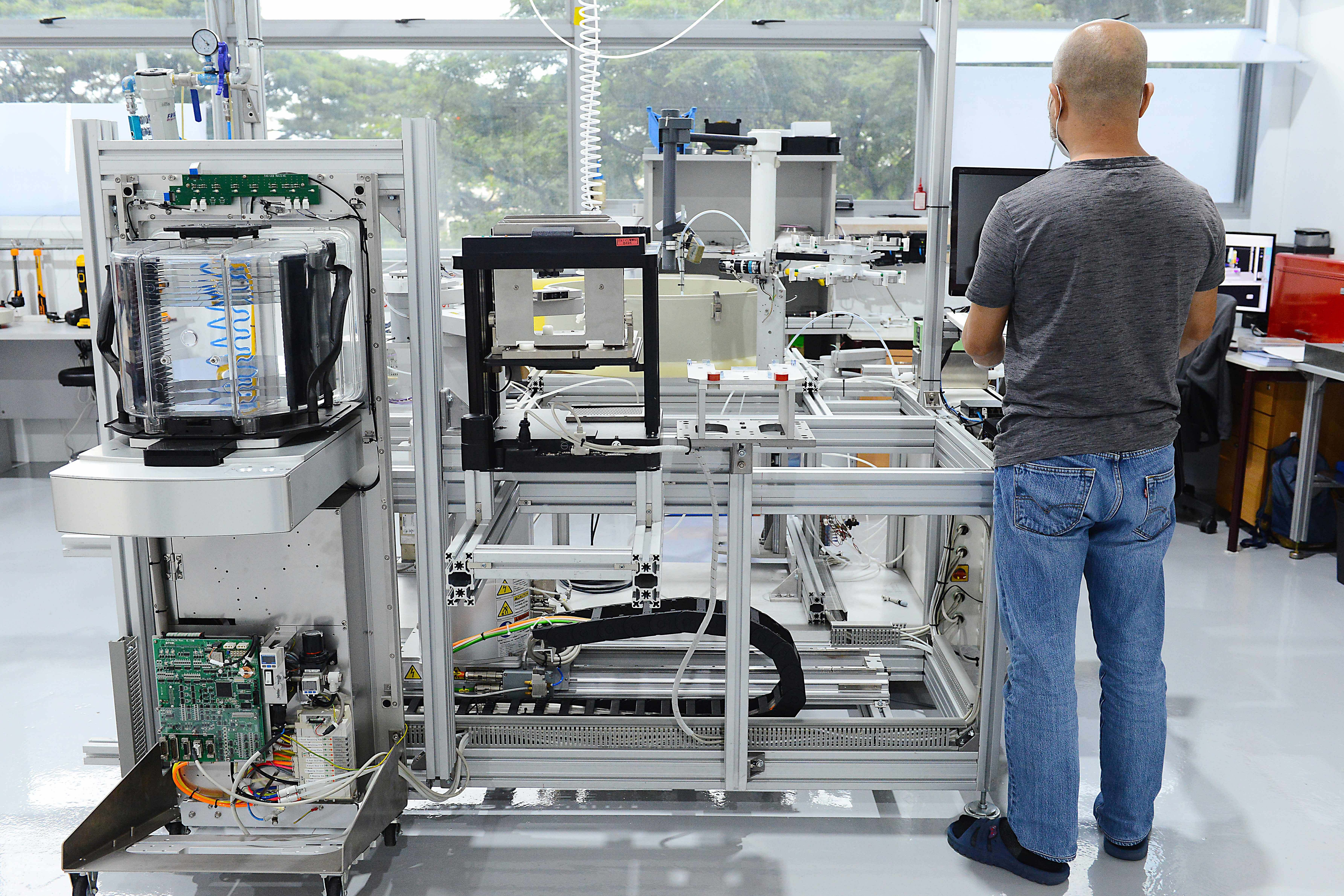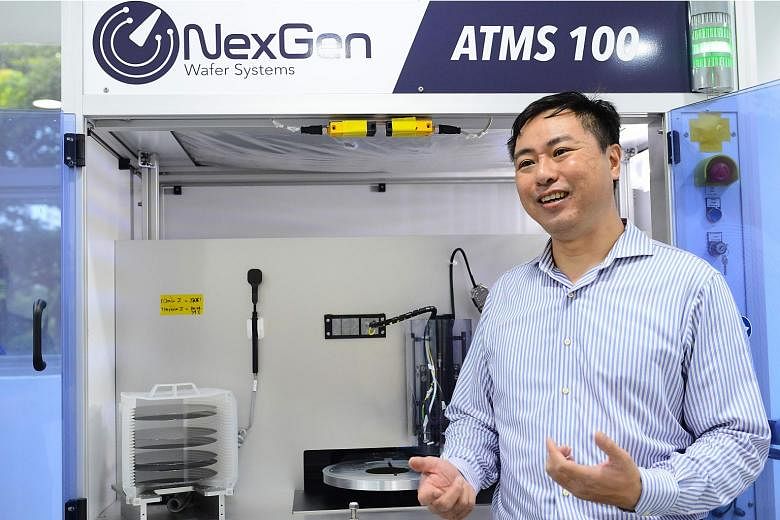The tiny but mighty microchip is at the heart of every tech tool that powers your life - from smartphones and electric vehicles to 5G networks and solar panels.
It is also the force that drives NexGen Wafer Systems' expansion. The company develops and sells machines that add circuits to wafers, a crucial step in creating microchips.
NexGen was founded by chief executive Cheung Ting Kwan, 45, and three others in 2011. As a veteran in the industry, Mr Cheung brings with him not just knowledge about chips, but also effective leadership.
He recalls the hardship he endured when, at 27, he started his first company providing services to semiconductor companies. "The early years were tough. I was single then and even slept in the office so I didn't have to pay for a home. It taught me a lot about determination, how you have to keep going even when you really want to give up."
He has since taken a step back from the company to focus on NexGen, his second business venture.
Mr Cheung's experience in adversity was useful in managing the uncertainties when the Covid-19 pandemic struck last year. "We didn't know what would happen to our (semiconductor) industry," he says.
"Thankfully, our sector recovered, and there is even more demand than before for microchips and the machines that make them. This is a great chance for us to grow our business."
The global shortage of chips - triggered by the pandemic and exacerbated by the high demand for consumer electronics - has affected production for everything from smartphones to cars.
Demand could continue to outpace supply, as cities and firms invest in electric vehicles, 5G networks, and other products and infrastructure that require the chips. In January, NexGen came up with a five-year plan to make the most from the dynamic opportunity.
NexGen has also started research and development (R&D) projects to create more applications for its machines, including at a new joint laboratory in Singapore with the Agency for Science, Technology and Research's Institute of Microelectronics (IME).
When Mr Cheung co-founded NexGen, it was one of the first in Singapore to focus on equipment to put circuits on wafers. He resolved to make it a success.
His perseverance has paid off. Revenue has grown by about 20 per cent annually over the past five years, and is expected to improve even further in the coming years.
A global plan for growth
NexGen's story is one of strategic global expansion, with Mr Cheung carefully steering the company's growth.
When he and his three co-founders, which includes two Austrians, created the company, they set up an office and a factory in Austria to take advantage of the country's engineering talent.
"Austria has a very strong engineering base, with many veterans in mechanical, electrical and other fields of engineering. It also has a well-established supply chain, which enabled us to get off the ground quickly."
With NexGen's business in the US growing in recent years, he opened an office in New York in May with the support of enterprise development agency Enterprise Singapore (ESG). Next in the pipeline: Offices in China and Japan.

"Our goal is to have regional offices and dedicated staff for every market that we are in, so that we can scale up our business more easily and better support our customers," he says.
Besides entering new markets, NexGen will also expand its factory in Austria and open a second one, possibly in Singapore, to quadruple its manufacturing capacity. This will be its first factory located outside of Austria. It plans to hire more people, both in Singapore, which houses its global headquarters, and overseas.
Innovating for the future
Looking ahead, NexGen will expand its range of offerings. It set up a joint laboratory with IME in May to develop new applications for its machines. ESG helped connect the two partners.
Mr Cheung explains the need to keep innovating: "New microchips are being created every day. These include new chips for the image sensors that allow self-driving cars to 'see'. You also have chips that are being made out of new and emerging materials, such as silicon carbide and gallium nitride.

"If we want to grow, we need to make sure that our machines can support these new kinds of chips. That's the focus of our laboratory with IME. We want to have new capabilities that we can show to our customers and use to differentiate ourselves in the market."
It is also tapping on ESG's network, as it considers working with other firms to design new products and technologies.
Mr Cheung's advice for other businesses, especially small and medium-sized enterprises (SMEs): Continue to find ways to improve.
"If you stand still in the marketplace, other firms will overtake you. Always strive to be better," he says. "Keep an open mind. Learn, upskill and change to stay ahead of the curve."
Helping hands in foreign lands
When NexGen wanted to set up an office in the US, it reached out to ESG's overseas centre in New York for advice. The New York overseas centre is part of ESG's global network with a presence in over 35 cities, helping Singapore businesses like NexGen expand into new markets.
Mr Cheung explains: "Even though the US is one of the friendliest places for businesses, it's still not easy for Singaporean firms. You have to know how to handle things like sales and income taxes, which are different in different states, and health insurance for employees."
ESG's New York overseas centre connected NexGen to a lawyer who walked it through the necessary legal and corporate processes and requirements. The agency has assisted the company in other ways, including by introducing it to potential partners for financing and R&D projects.
SMEs should seek assistance when they need it, he says, especially if they are aiming to enter overseas markets. "We really benefited from ESG's help."
This is the fifth of a six-part series titled "Keep Growing" in partnership with


